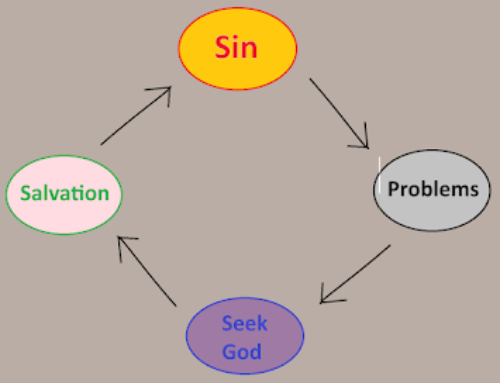When we think about the New Testament, the teachings of Jesus and Paul are probably the first to come to mind. Jesus, of course, is the focus for the whole New Testament. The Gospels cover his life and death while his teachings, resurrection, and the advent of the Holy Spirit are what provide the foundation for all the other books in the New Testament. Paul, on the other hand, was the prominent figure in the New Testament responsible for the spread of Christianity from the Jews to various groups of Gentiles throughout the Mediterranean Sea coast and Middle East.
There is good reason that those two are the stars of the New Testament, but we shouldn’t forget that other voices are also present within the New Testament books. Jesus had twelve disciples and several of them have books that appear in the New Testament. They each bring interesting perspectives.
When we learn about the disciples in the Gospels, they are studying under Jesus, and they aren’t always quick on the uptake. At times, Jesus even gets frustrated with their lack of faith and understanding. However, in the books they wrote, we are able to see their growth and maturity. We see how they went from students to teachers. They are no longer the ones asking questions. Instead, they have become the ones giving answers. It’s important to note that their writings really only repeat lessons that Jesus first taught. However, they are able to deliver those same lessons from a different perspective. Unlike Jesus, his disciples weren’t God in the flesh. They were people just like us who had to learn and come to an understanding of the truth. In that sense they were able to deliver Jesus’ message in a way that even he couldn’t – as people who had walked in the darkness but came to see the light.
The Book of James is a good example. It’s not very long, but it is packed with useful information. The first chapter alone makes some interesting points that should be of use to all believers.
If any of you lacks wisdom, you should ask God, who gives generously to all without finding fault, and it will be given to you. But when you ask, you must believe and not doubt, because the one who doubts is like a wave of the sea, blown and tossed by the wind. That person should not expect to receive anything from the Lord. Such a person is double-minded and unstable in all they do. – James 1:5-8
Everyone has likely heard the shortened version of this verse “Ask and ye shall receive.” As is common, that shortened version leaves out important information. James is speaking specifically about gaining wisdom. He’s not talking about asking God for just anything. However, the more important part of the verse shines light on the requirement for us having our requests granted. When we ask God for something, we have to believe that he can and will deliver. If we ask but don’t really believe God will grant our requests, we’re just wasting our time. That’s important to remember. People who offer half-hearted prayers shouldn’t expect an answer. When we go to God, we should be firm and resolute in our confidence in him.
When tempted, no one should say, “God is tempting me.” For God cannot be tempted by evil, nor does he tempt anyone; but each person is tempted when they are dragged away by their own evil desire and enticed. Then, after desire has conceived, it gives birth to sin; and sin, when it is full-grown, gives birth to death. – James 1:13-15
It’s not uncommon to hear people say things like “God is testing me.” Sometimes those people mean that God is subjecting them to hardship to make them stronger. Other times they mean that God has put an obstacle before them to see if they can resist. James is telling us that people who claim to be in the midst of these tests from God should be careful, especially with the latter example. While God may very well nudge us along our paths to help us get stronger in our faiths, he’s never going to purposely put us in positions where we may fall to sin. That should really be obvious. God doesn’t want us to sin, so why would he subject us to anything that could lead us to sin? That sounds more devilish than godlike.
Those who consider themselves religious and yet do not keep a tight rein on their tongues deceive themselves, and their religion is worthless. Religion that God our Father accepts as pure and faultless is this: to look after orphans and widows in their distress and to keep oneself from being polluted by the world. – James 1:26-27
These two verses make two different but very important points for today’s world. We hear a variety of ideas being expressed by Christians nowadays. Unfortunately, much of them are questionable and don’t really reflect what the Bible says. Many of the people that espouse these ideas are reckless with their words and so-called teachings. James says the religion of those people is worthless. It doesn’t matter how pious people believe themselves to be, if they are not careful and considerate with the things they say, then they are not really doing the work of God. However, those that help the needy (e.g., orphans and widows) and keep themselves separate from the ills of the world are practicing a religion that actually reflects God’s desires. As the saying goes – actions speak louder than words
James makes many more good points in that first chapter and the rest of the book. His book is worth the read as are all the books in the Bible, particularly those in the New Testament. It doesn’t matter how short the book is or how prominent the writer, God inspired them all for a reason. Even when different books happen to cover the same topic, they often do so in unique ways. Basically, the various books in the Bible exist to make sure the Bible has something for everyone. If you’re not reading regularly or are skipping over certain books, you might be cheating yourself out of lessons that God meant just for you.
Image courtesy of Simply Gospel







